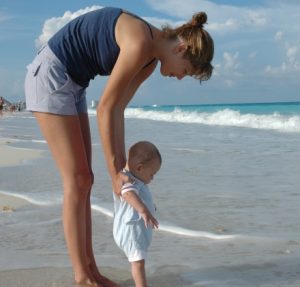Eating Disorders Can Cause Reproductive Health Problems
 Adolescent females with eating disorders have yet another health issue they may have to grapple with once they’re ready to have children: reproductive problems.
Adolescent females with eating disorders have yet another health issue they may have to grapple with once they’re ready to have children: reproductive problems.
A new study from the University of Helsinki found that the likelihood for miscarriage in women with binge eating disorder (BED) was more than triple that of women who do not have the condition. BED sufferers were also about twice as likely to abort unborn babies than their peers.
Discrepancy most seen in anorexics
The study also found that, in general, women with eating disorders are less likely to have children than other women of the same age – but the discrepancy was most apparent in anorexia sufferers. Women with this condition are about half as likely to become pregnant.
For women who had been treated for BED, half of all their pregnancies ended in miscarriages, the research reported.
“Early recognition, effective care and sufficiently long follow-up periods for eating disorders are crucial in the prevention of reproductive health problems,” said researcher Milla Linna from the University of Helsinki, Hjelt Institute.
A strong enough link
The researchers are careful to note that the study doesn’t suggest a causal relationship between having an eating disorder and not having children, but the problems can feasibly be partially linked.
“Both being underweight and obese are known to be associated with the increased risk of infertility and miscarriage,” Linna said. “Eating disorders also often involve menstrual irregularities or the absence of menstruation, which may lead to neglecting contraception and ultimately to unwanted pregnancies.”
The study was published in the international Journal of Eating Disorders.
Source: Science Daily
 Eating Disorder Self Test. Take the EAT-26 self test to see if you might have eating disorder symptoms that might require professional evaluation. All answers are confidential.
Eating Disorder Self Test. Take the EAT-26 self test to see if you might have eating disorder symptoms that might require professional evaluation. All answers are confidential.